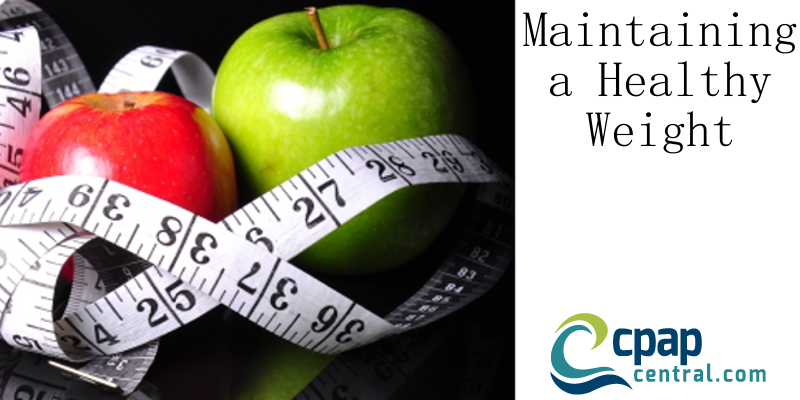
Did you make a commitment to lose weight at the start of this year? You’re not alone. It’s one of the top resolutions made every New Year, according to a Nielsen study. While CPAPCentral.com encourages you to take an active role in your health, we would like to talk today about what a healthy weight looks like.
As you already know, being overweight can have a negative impact on your sleep apnea and increase the importance of your CPAP machine and equipment. While being overweight is not recommended, having a healthy weight where you are neither over nor underweight is very important too. Remember, just because a person may be skinny is no indication of health.
Start your commitment to losing weight by just changing your habits for one week. That’s it. One week. Focus on healthier meals in that time. Start with a healthier breakfast and a healthier evening meal. See how you feel after seven days.
Learn about portion size and serving size. Most of the meals we eat, especially meals out, are way above the recommended serving size. You may be shocked to see the right portions on your plate.
Go online and search for obesity-related health problems. Besides sleep apnea, being overweight can impact the heart, joints, brain and increase your risk for developing diabetes.
Do something healthy just for today. Don’t sabotage your plans by setting huge goals or resolutions that you won’t keep, just go for a walk today. Worry about tomorrow when it gets here and then make a plan for that day. One day at a time is the key.
CPAPCentral.com is here for you in your quest to reach a healthy weight, and reminds you of the role your weight can play not just in your sleep apnea, but in your overall health. We have the equipment and supplies that can help you manage your sleep apnea symptoms.



